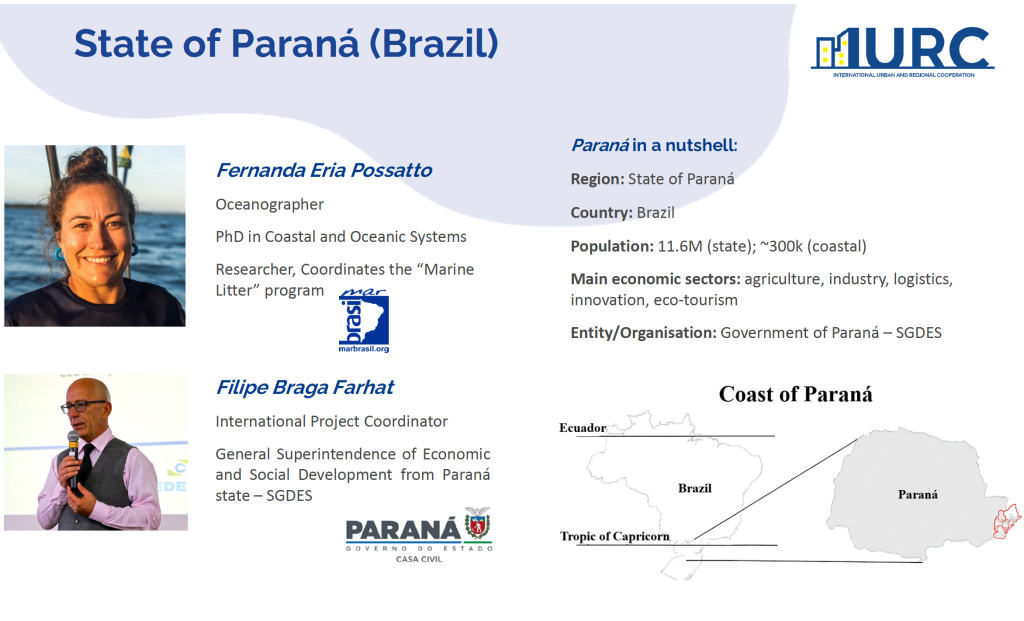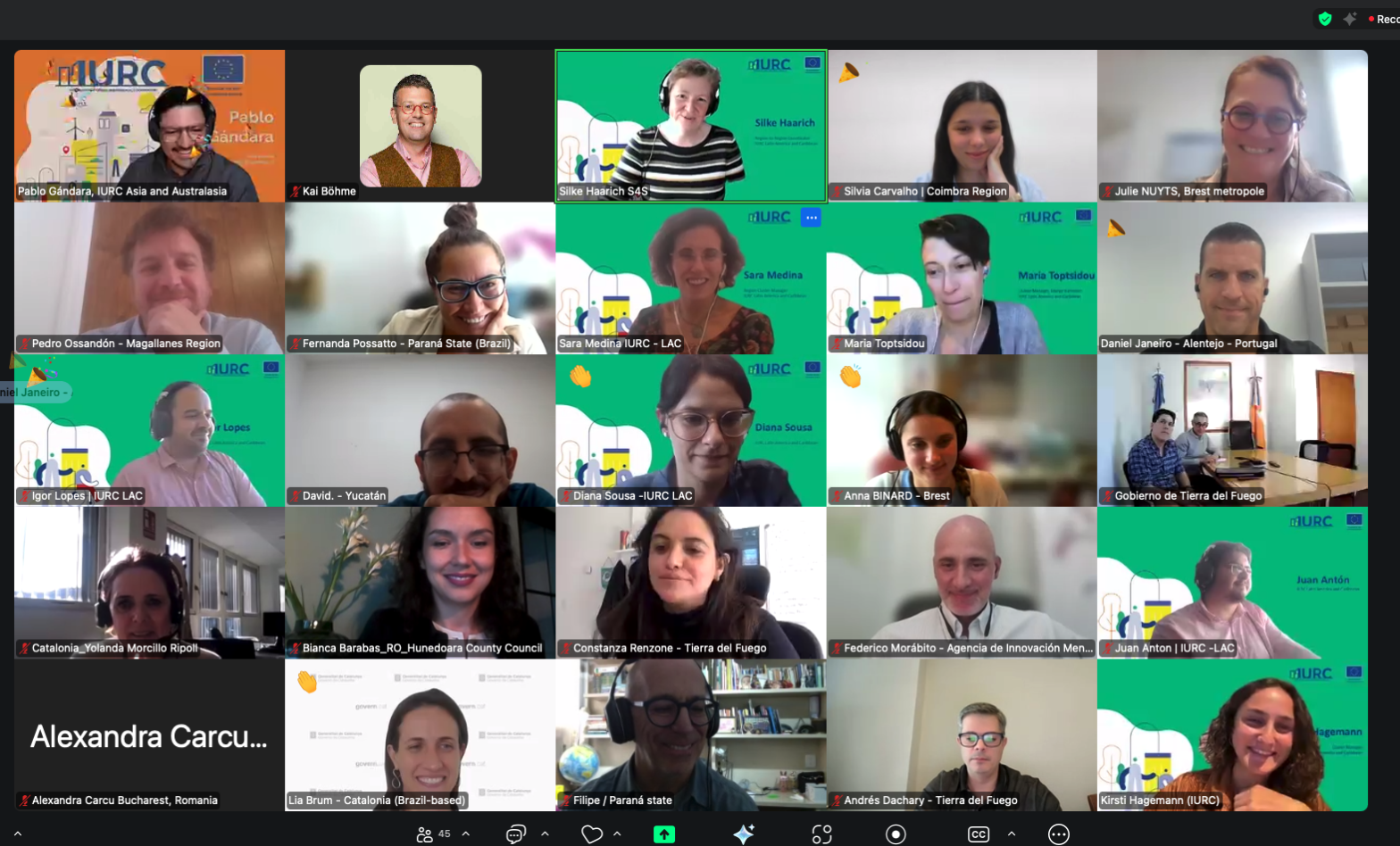On 23 September 2025, the International Urban and Regional Cooperation (IURC) Latin America and the Caribbean programme held the second session of its regional thematic clusters, focusing on Clean Energy and the Blue Economy. The meeting gathered 50 participants from Europe and Latin America, who shared regional strategies on energy transition, hydrogen, aquaculture, maritime transport, and sustainable governance frameworks.
The session was opened by Silke Haarich, Region-to-Region Coordinator of IURC-LAC, who introduced the thematic focus and reminded participants of the programme’s long-term vision through 2027. She emphasized the importance of structured cooperation, communication support, and business-to-business collaboration. Two cluster managers were introduced: Maria Toptsidou for Clean Energy, and Sara Medina for the Blue Economy. Both outlined how their clusters will foster knowledge sharing, partnerships, and pilot projects.
Clean Energy Cluster
Maria Toptsidou introduced the clean energy cluster, stressing its role in achieving a just transition, with projects ranging from large-scale initiatives like Sweden’s green hydrogen steel production to small-scale community renewables. She highlighted EU funding mechanisms and policy frameworks, pointing to opportunities for cross-regional partnerships.
Ostrobothnia (Finland) – Johanna Dahl presented the region’s strong manufacturing base and energy technology cluster, along with projects like ESPON Re-Industry and the Bothnia Hydrogen Valley, focusing on wind and hydrogen cooperation.
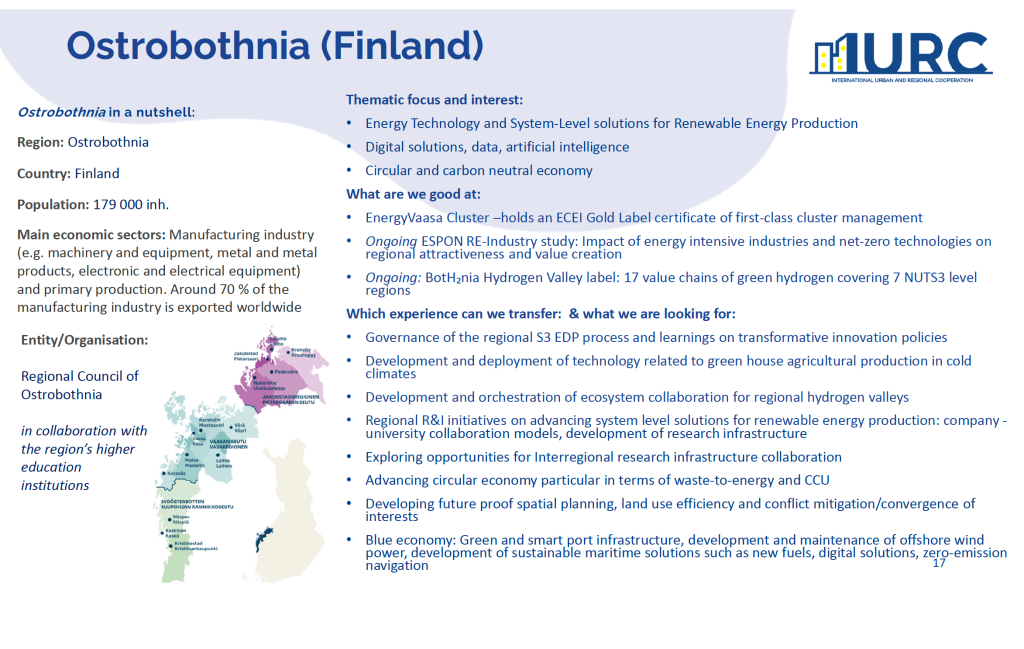
Hunedoara County (Romania) – Iulian Iovan and Bianca Barabas shared their efforts to shift from coal mining to sustainable energy and tourism. The redevelopment of the Petrila mining site is a flagship project of their transition strategy.
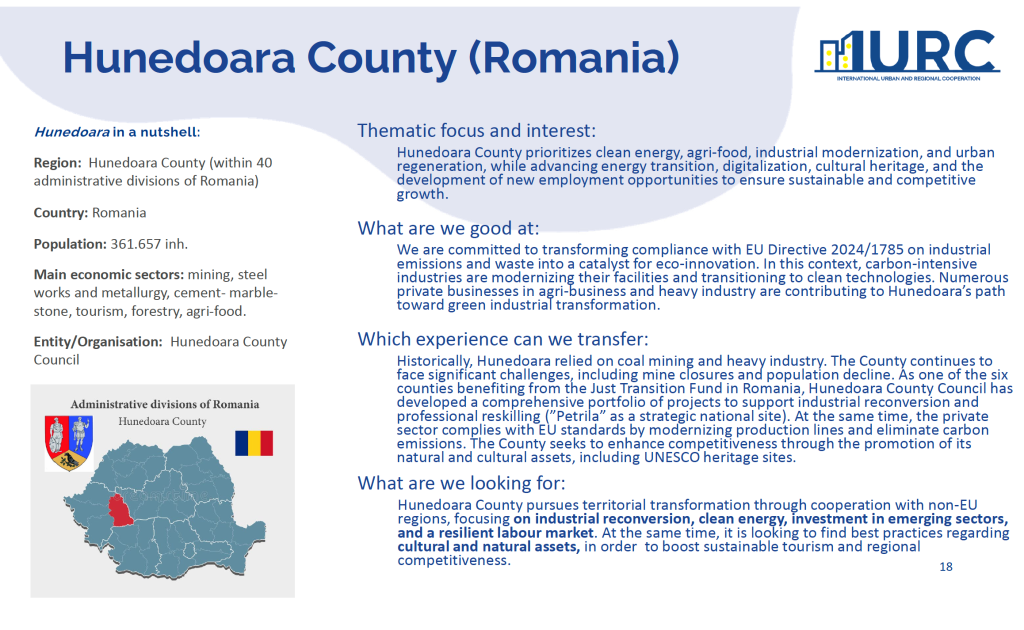
Alentejo (Portugal) – Daniel Janeiro emphasized the region’s economic dynamism, foreign direct investment in energy transition, and openness to partnerships in governance and logistics.
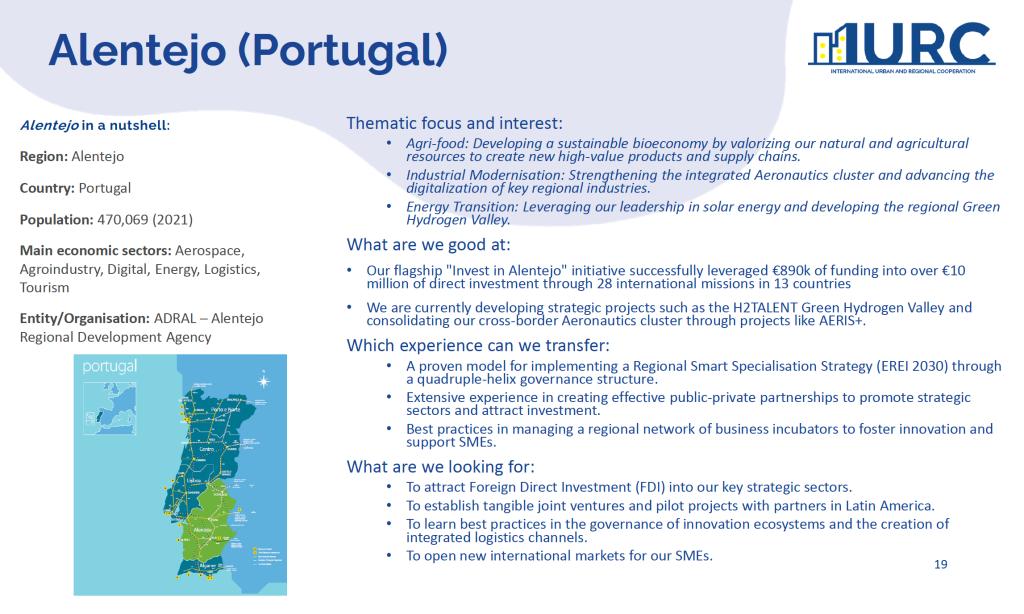
Magallanes & Chilean Antarctica (Chile) – Pedro Ossandón highlighted the region’s transformation into a global green hydrogen laboratory, alongside resilience projects in horticulture under extreme climate conditions.
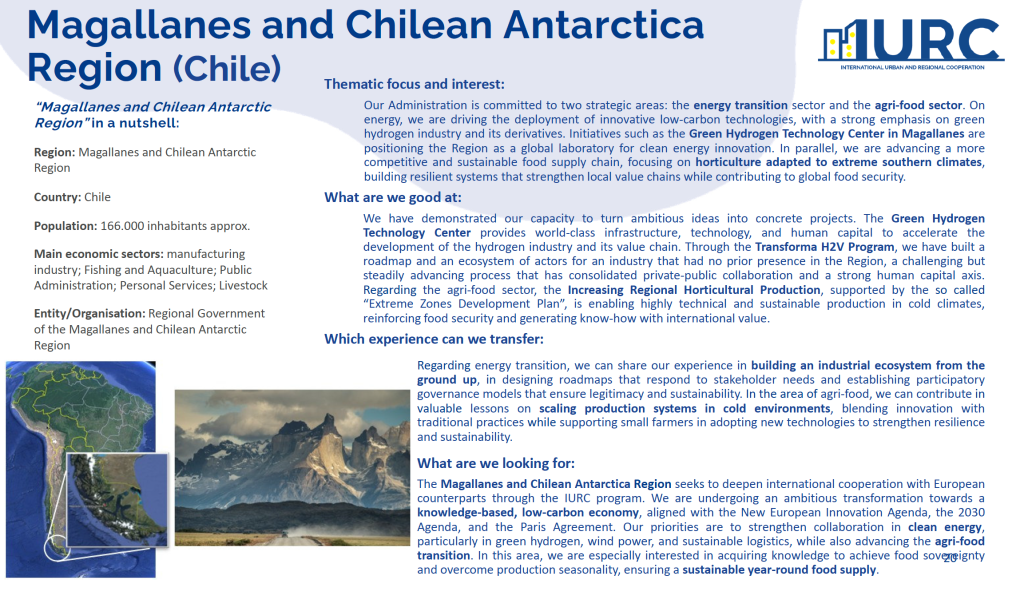
Yucatán (Mexico) – Michel Echeverría presented the state’s five renewable energy plants and its ambition to democratize energy access for local communities.
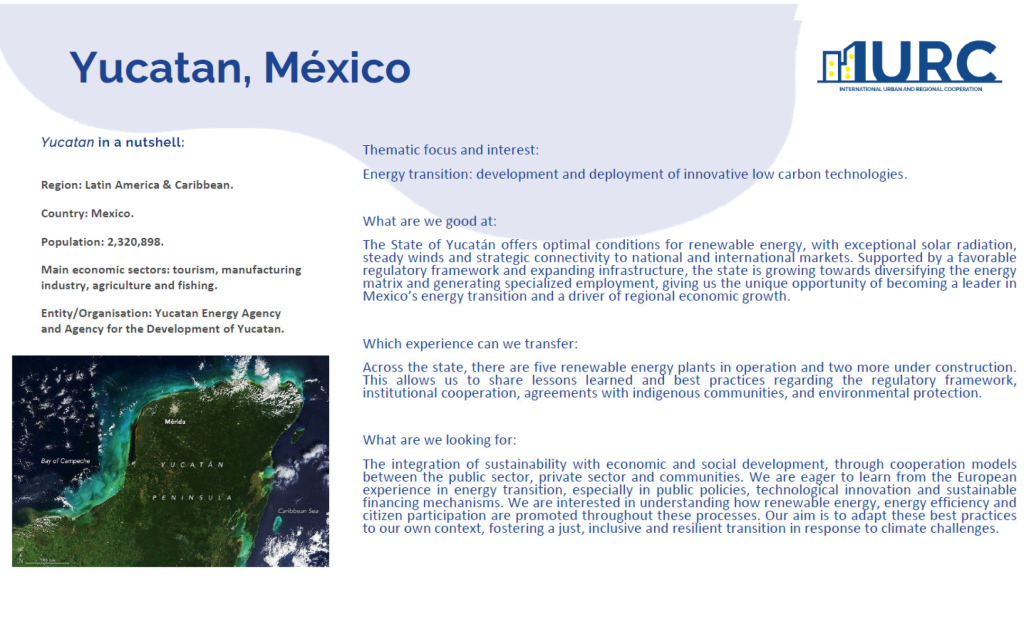
Valle del Cauca (Colombia) – Nasly Vidales outlined efforts to integrate circular economy principles and a low-carbon transition in both manufacturing and agri-food industries, while seeking guidance on governance structures.
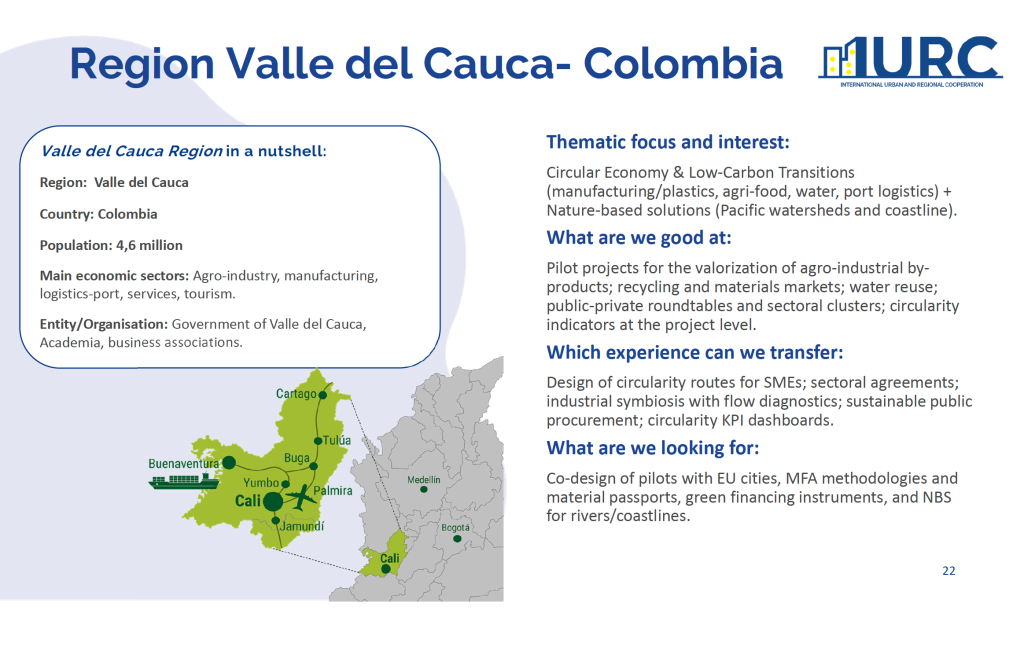
Blue Economy Cluster
Sara Medina introduced the Blue Economy, stressing its cross-cutting scope, from fisheries and aquaculture to maritime transport and port innovation. She showcased EU programmes such as Horizon Europe and the European Maritime Fisheries and Aquaculture Fund, and highlighted successful cooperation examples like Anchor and Transforming EU Atlantic Ports.
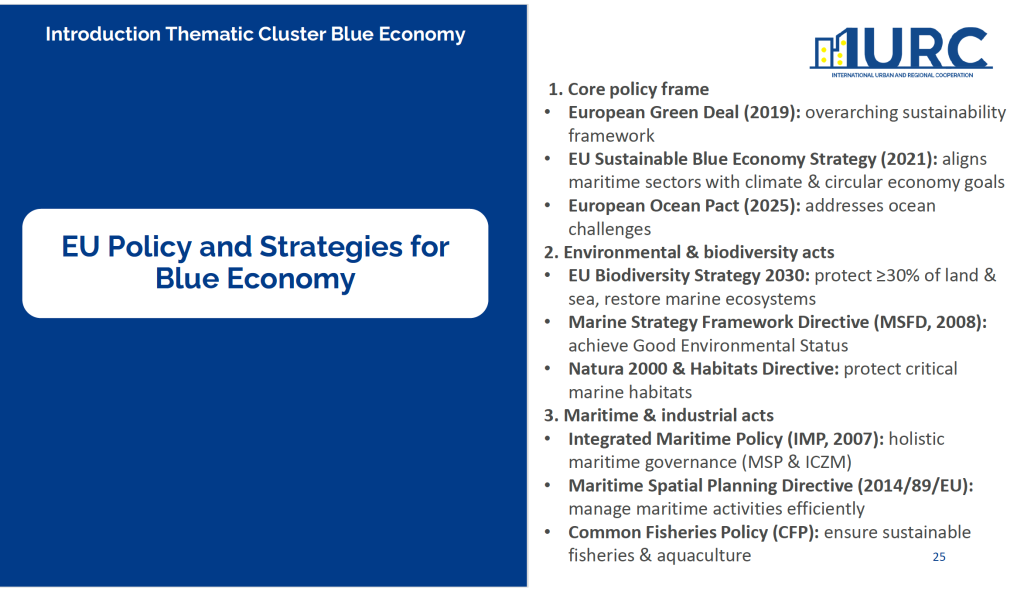
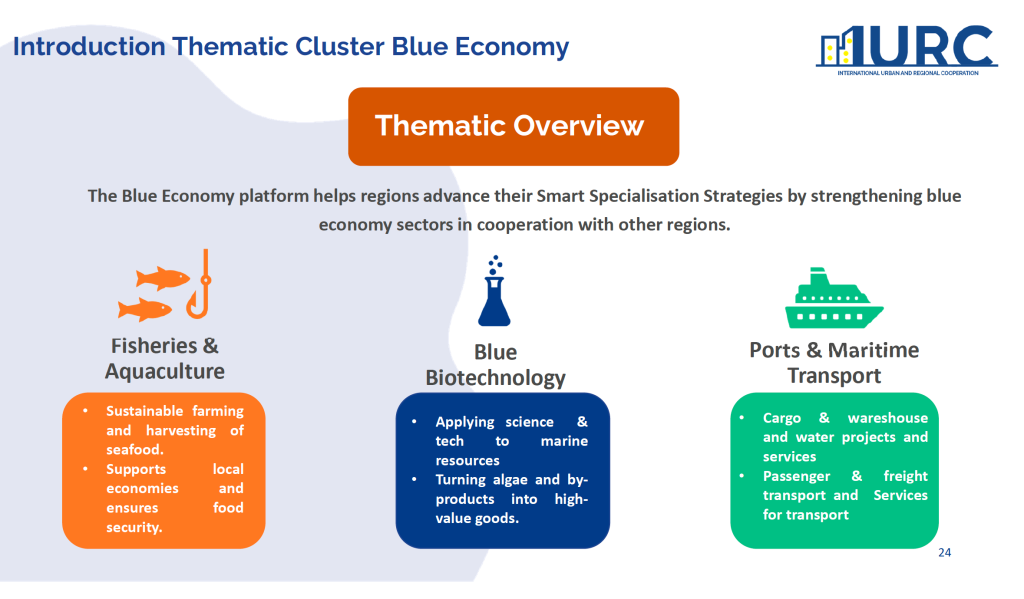
Catalonia (Spain) – Lia Brum presented the regional maritime strategy and research institutions, including the BlueNetCat network, advancing marine research and innovation.
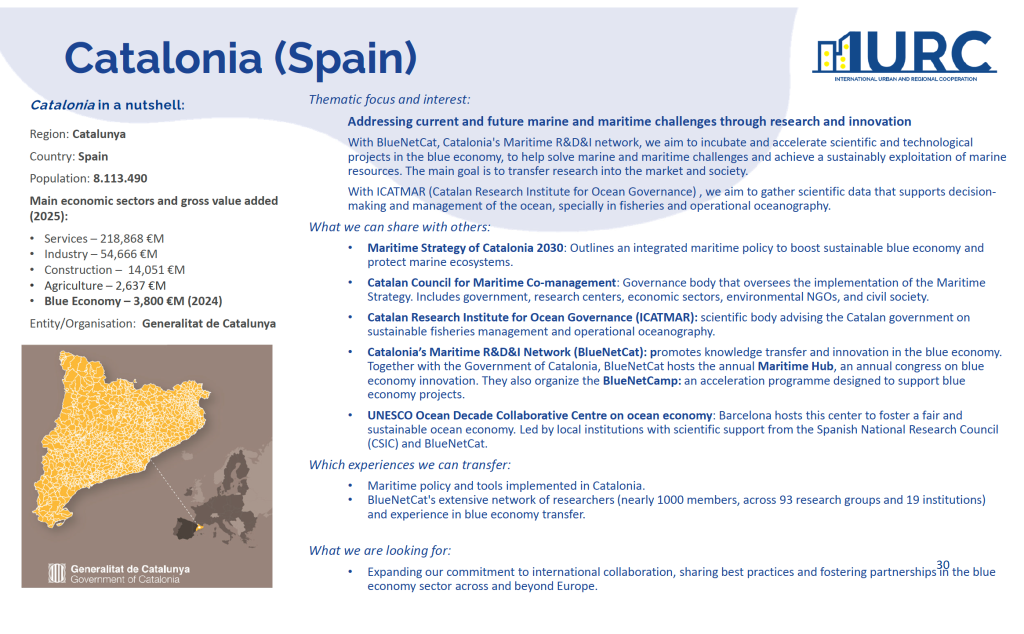
Coimbra (Portugal) – Silvia Carvalho described an integrated approach linking renewable energy, aquaculture, and sustainable blue economy development.
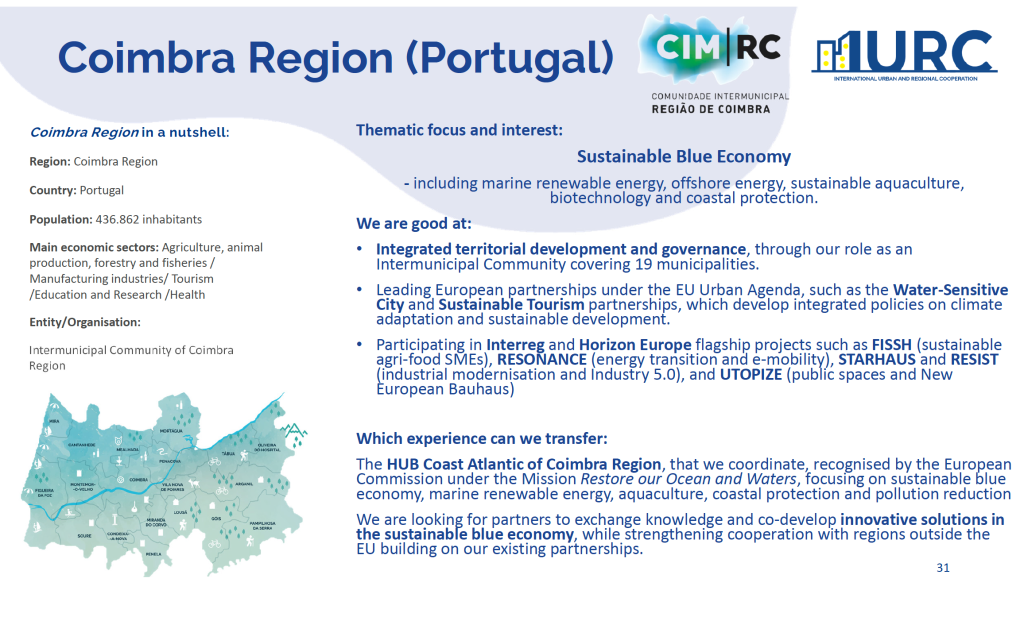
Brest Métropole (France) – Anna Binard and Julie Nuyts emphasized Brest’s maritime research leadership and its cooperation with Tierra del Fuego.
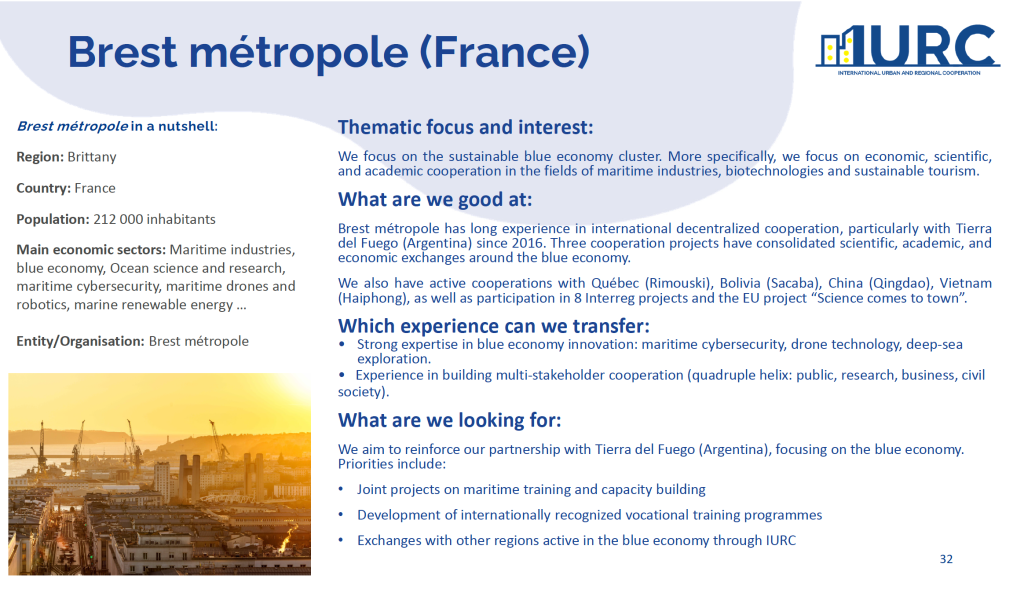
Tierra del Fuego (Argentina) – Andrés Dachary and Constanza Renzone shared experiences in mussel farming and aquaculture, with strong interest in learning from European practices.
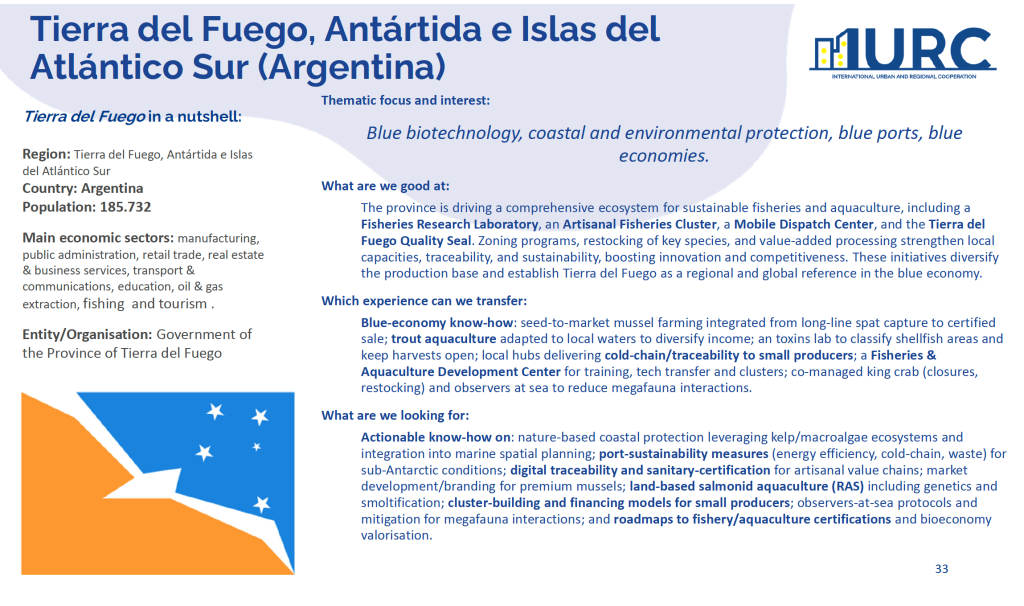
Paraná (Brazil) – Fernanda Possatto presented Paraná’s diverse economy and biodiversity, showcasing projects in artisanal fisheries, aquaculture, eco-tourism, cultural heritage, and citizen science linked to sustainability.
